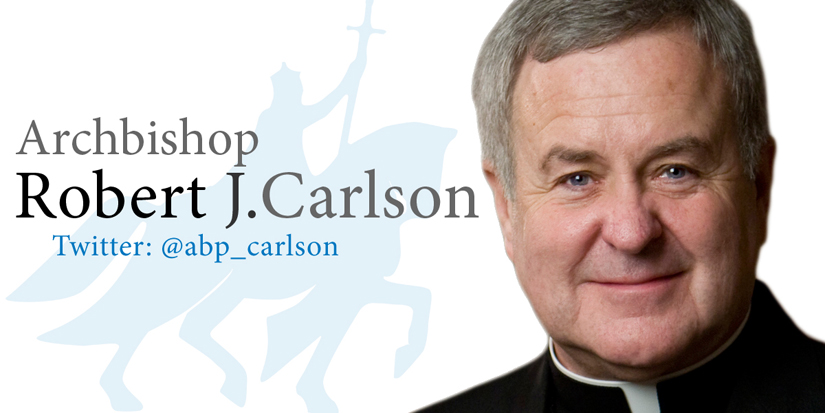 “Full of grace.” We say those words so often, when we pray the Hail Mary. We also hear them twice this week in the Gospel: once on the Feast of the Immaculate Conception (celebrated Dec. 9 this year, not a holy day of obligation), and again on the Feast of Our Lady of Guadalupe (Dec. 12).
“Full of grace.” We say those words so often, when we pray the Hail Mary. We also hear them twice this week in the Gospel: once on the Feast of the Immaculate Conception (celebrated Dec. 9 this year, not a holy day of obligation), and again on the Feast of Our Lady of Guadalupe (Dec. 12).
Those three words in English are just one word in the Greek of St. Luke’s Gospel: kecharitomene. The term is a bit hard to translate because, interestingly, it had never occurred anywhere else up to that point — not in the Bible, and not in Greek literature.
That seems appropriate! It’s a singular word for a singular person, Mary, and a singular event, the Incarnation.
The word means something like: “you who are now and have always been given the fullness of God’s grace.” It’s connected with the development of the dogma of the Immaculate Conception. To say that Mary was immaculately conceived is to say that the fullness of God’s grace did not begin at some particular point during the course of her life. Rather, it was there from the very beginning of her life, the moment of her conception. If it’s too much to claim that the entire dogma is explicitly contained in the one Greek word, it also needs to be said: the word supports that conclusion, and points in that direction, and starts us down the path of explicitly recognizing this great truth of the faith.
In our own way — albeit not with the same fullness as Mary! — each of us is unique, and we have been given unique graces for our tasks in life. The recently canonized St. John Henry Newman reflected on this once, when he said: “God has created me to do Him some definite service. He has committed some work to me which He has not committed to another. I have my mission.”
What strengthens us to fulfill our God given mission is made clear by another Gospel passage this week, the Visitation. Mary brought Jesus’ physical presence to Elizabeth, and the child in Elizabeth’s womb leaped for joy. Something similar is true of our lives. Jesus comes to us — in a physical way in the Eucharist (that is to say, it is truly His body and His blood), and in a spiritual way in our daily lives. And our hearts leap in His presence — sometimes with joy, sometimes with peace, sometimes with courage or the energy for a hard task. That’s the Visitation being re-created on a daily basis in our lives. And the grace of His presence gives us the strength to fulfill our God-given mission.
God wants to fill all of us with grace, each in our own measure. The world awaited Mary’s “yes,” and benefitted from it. The world also awaits our “yes” to God’s grace, and will benefit from it, no matter how small we may be compared to Mary.